Greek Your Gift List
From holiday decor to pieces that…
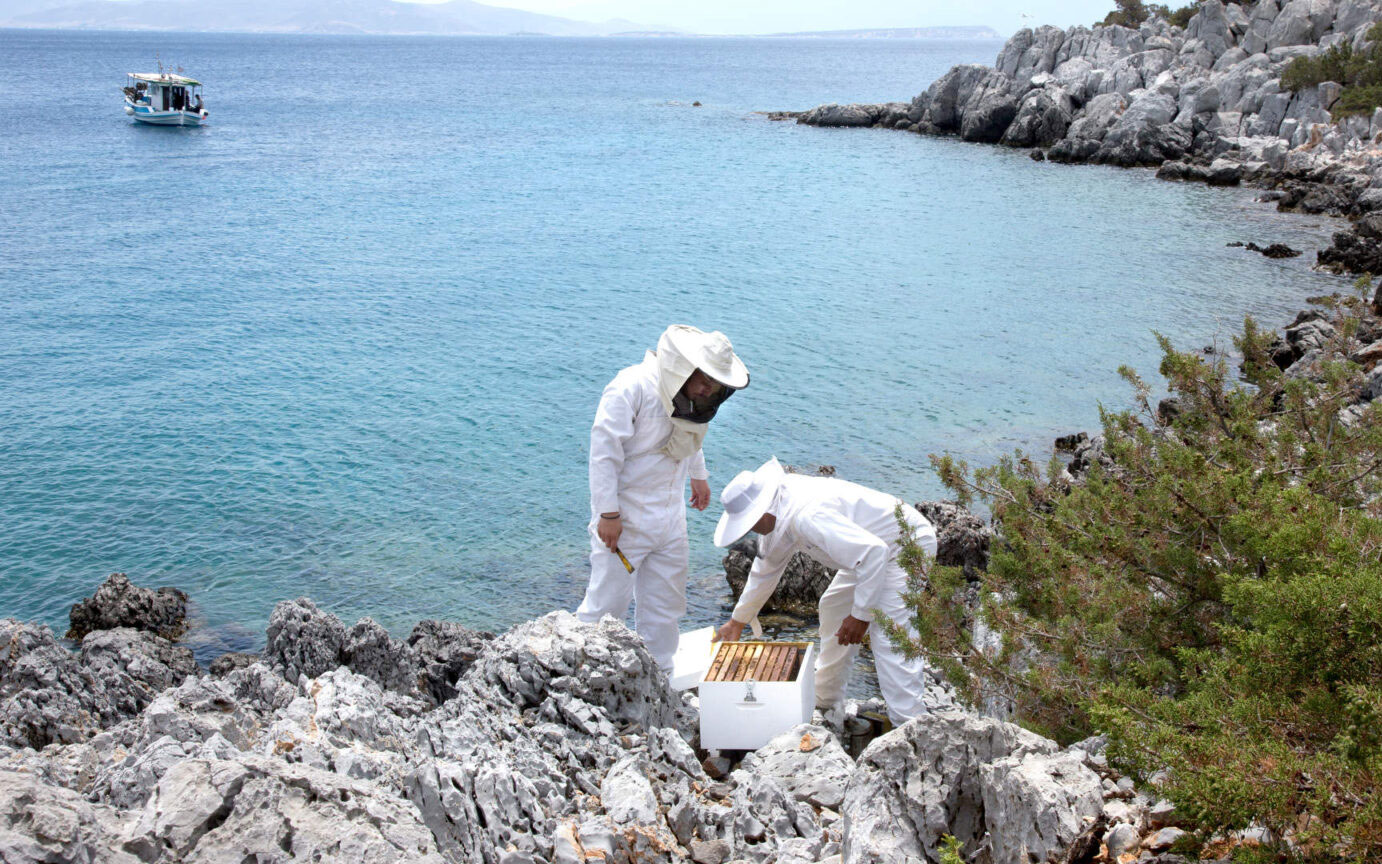
© John Miniotis
Thirteen hives are scattered across sharp seaside cliffs in Kalymnos’ Agia Makrina. They look like large birds basking in the sun. Captain Nioti’s fishing boat carefully approaches them, avoiding the sandbanks. Before arrival, a dreamily scenic 10-minute boat trip through the Vathi village fjord, 11 kilometers northeast of Chora.
Under the meadow, with the agility of a skilled acrobat, 58 year-old former police captain Drosos Kopanezos and his 30 year-old son Antonis, go ashore to inspect their hives.
Honoring the family beekeeping tradition since 1942, every May they take their hives to their ancestral land from Kos, where they live permanently, exclusively to gather thyme honey.
At night they seal the hives, transport them by chartered boats at around two in the morning from Mastichari to Kalymnos and then unload them by torch-light.
To avoid a large concentration of bees, they break their apiary into five smaller sections.
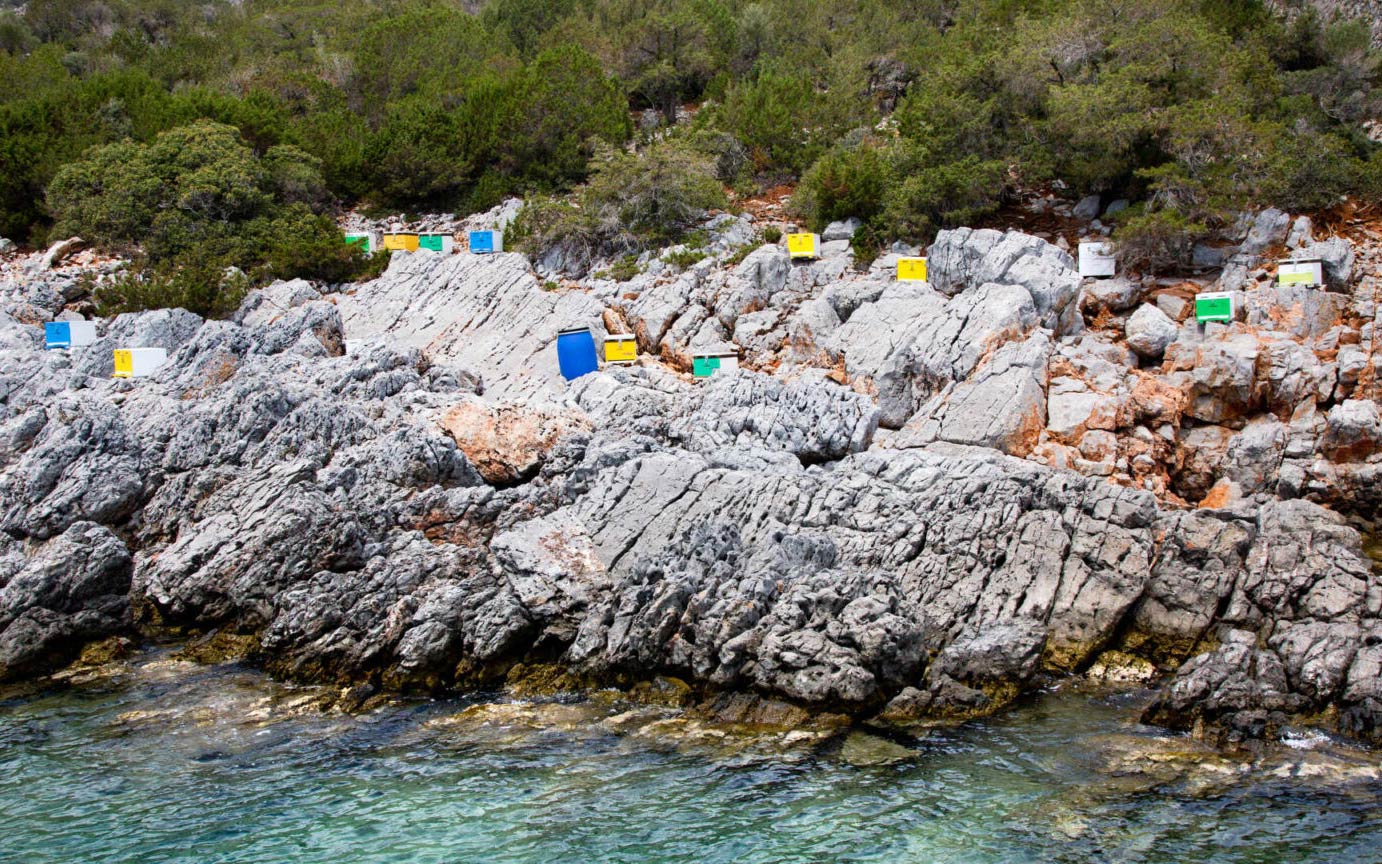
The hives are placed in places protected from strong winds.
© John Miniotis
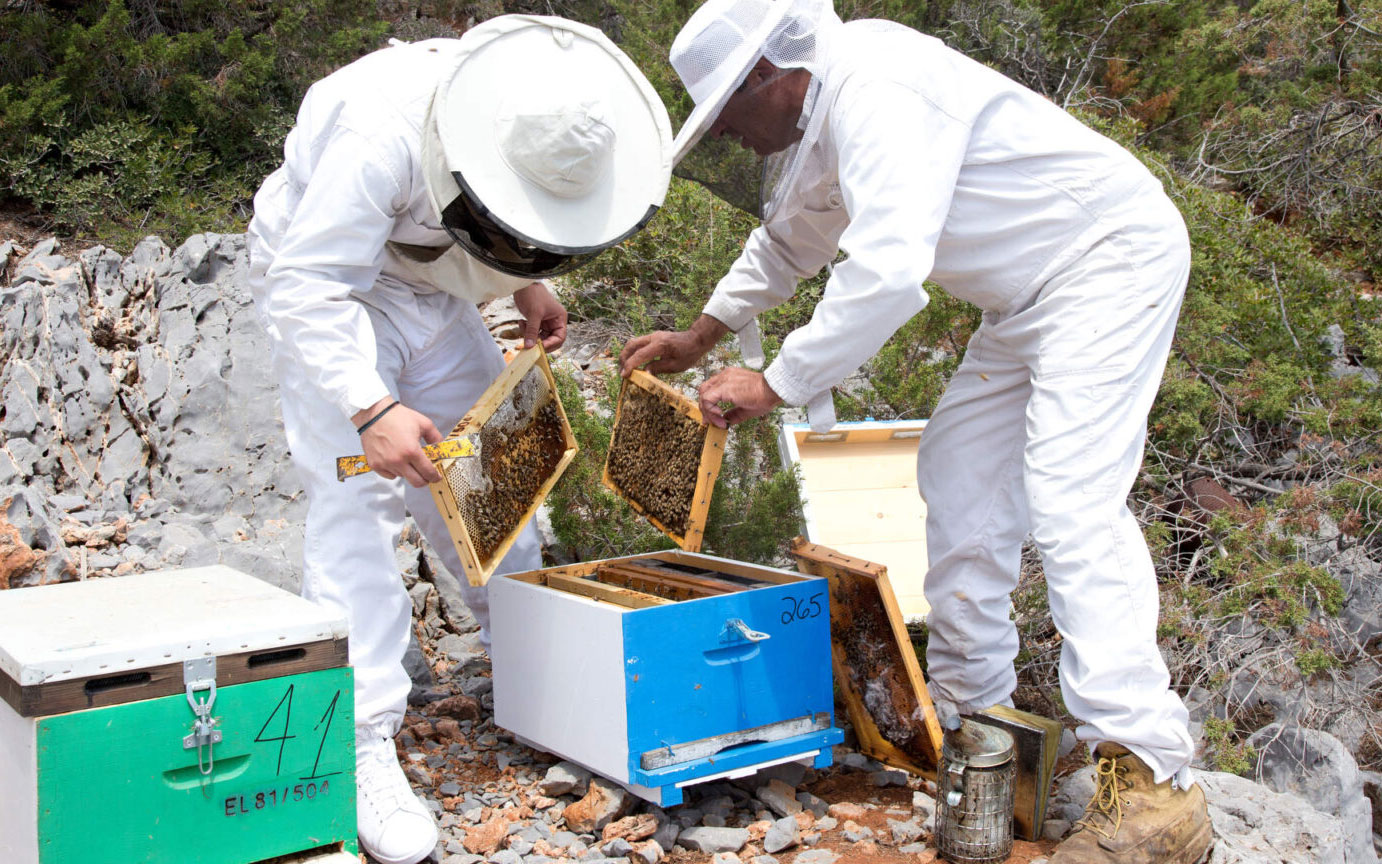
© John Miniotis
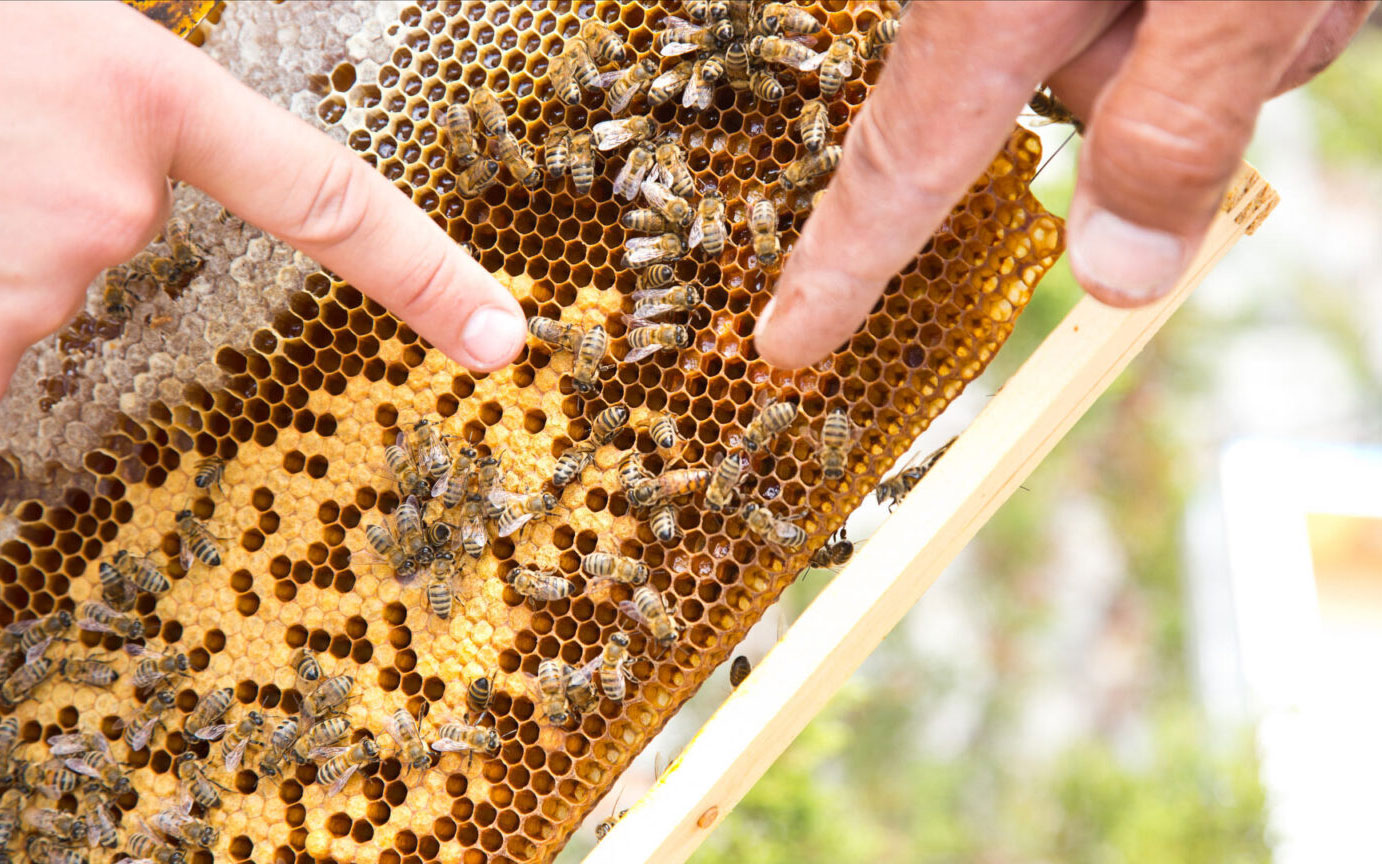
© John Miniotis
Initially, they move them to places with prematurely flowering thyme and as the summer gets hotter they transport them to areas with late-blooming thyme.
As a rule, they always choose coastal areas because the humidity is higher in the evening, so the thyme produces more nectar. Also, they are protected from the north wind, to reduce breakage from falls.
They say that from the two to three tons of honey they produce annually, no human hand touches it until it is extracted.
They usually collect the honey in late July. They remove the frames from the hives, peel them to remove the wax, run them through the filtering machine and gather the honey. They then leave it for 10 days in stainless steel barrels to “settle down.”
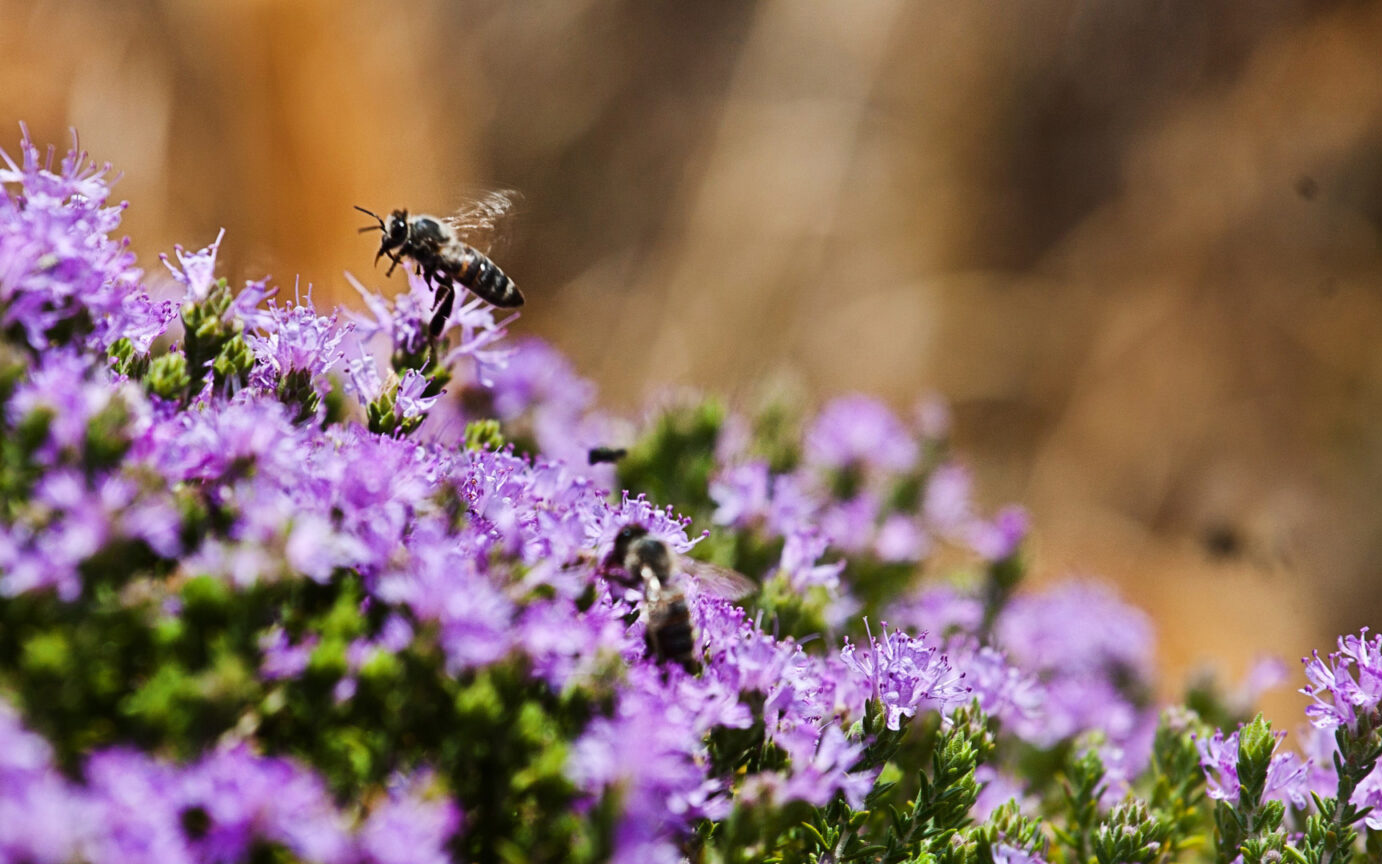
© John Miniotis
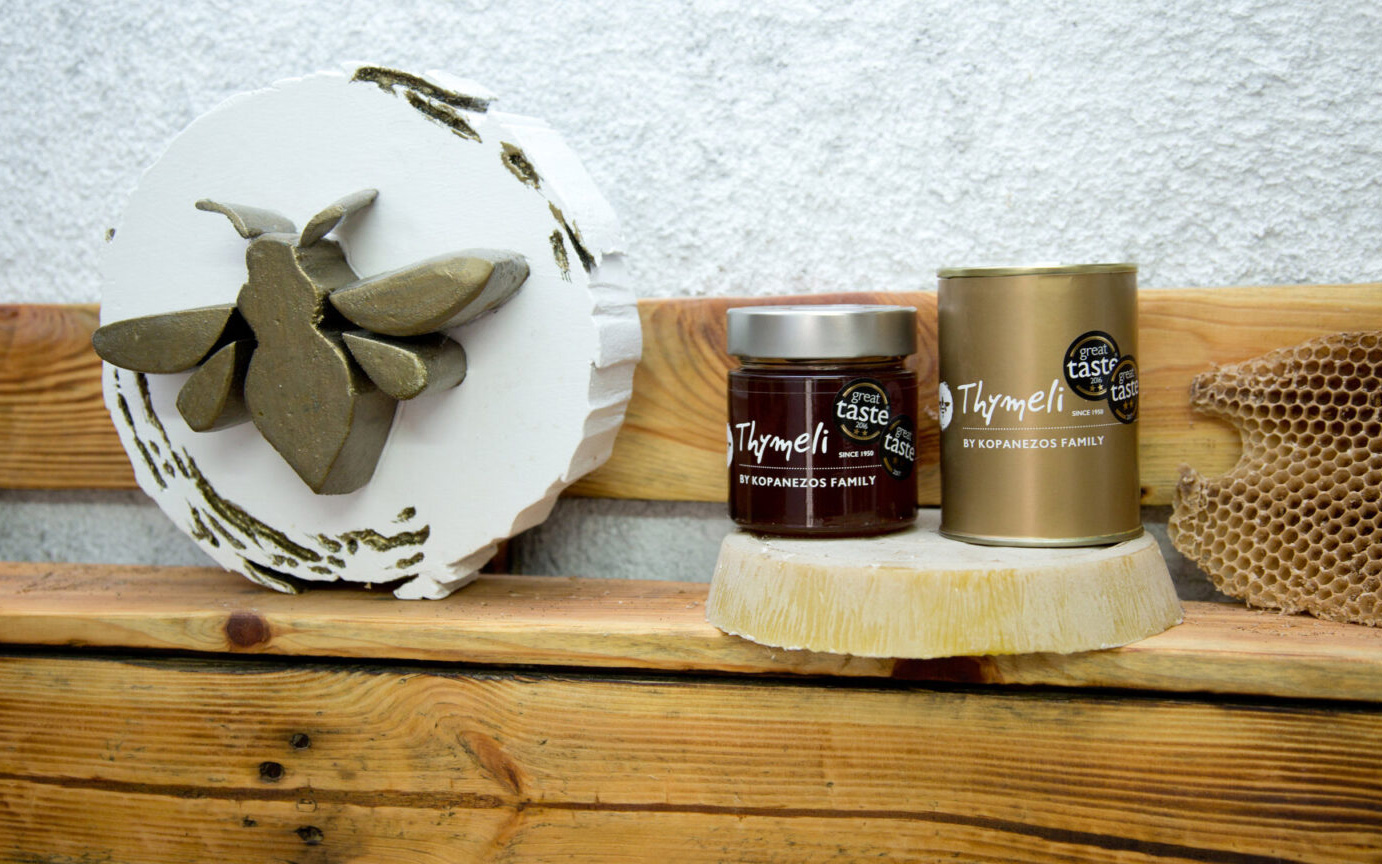
© John Miniotis
The honey doesn’t “accept” foreign bodies, so these are pushed to its surface and then removed.
Their authentic thyme honey is now ready to be packaged in the family’s small and tidy workshop in Vathi.
Genuineness defines the Kopanezos family’s brand. As if they would risk breaking their legs on steep rocks in the summer heat in order to reach areas that can give them the purest thyme honey and then adulterate it. It would be like polluting their soul; a soul that, according to the Aristotle University’s beekeeping laboratory, is shown to be made up of 81% thyme pollen.
This article was previously published in Greek at gastronomos.gr.
From holiday decor to pieces that…
The honey derived from the wild…
These 10 producers have extracted their…
Vasilas' ladotyri cheese, aged in olive…